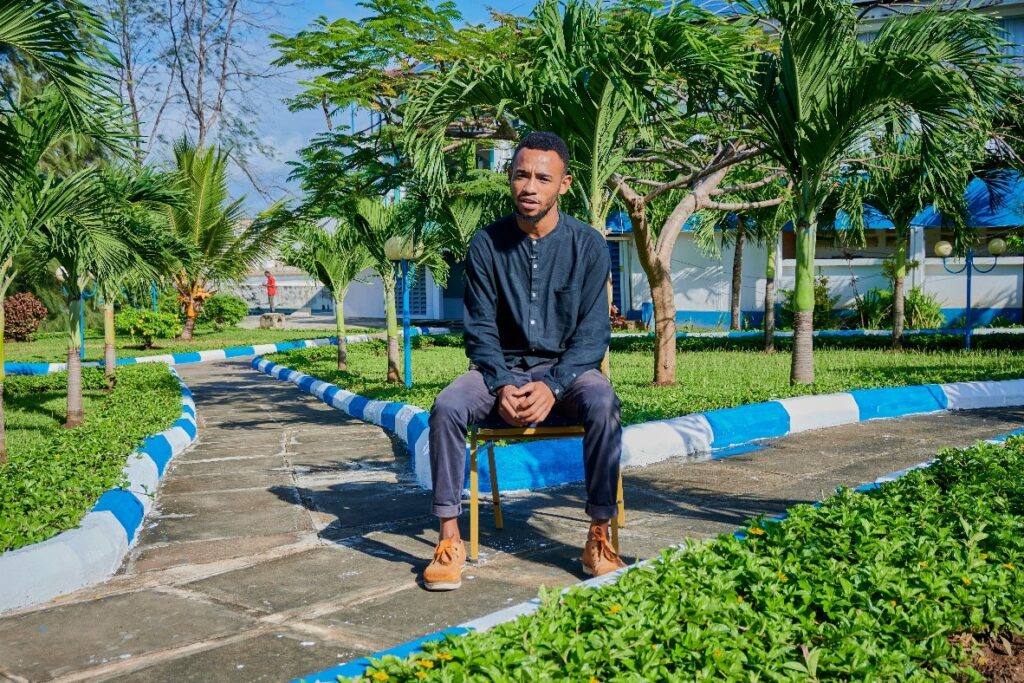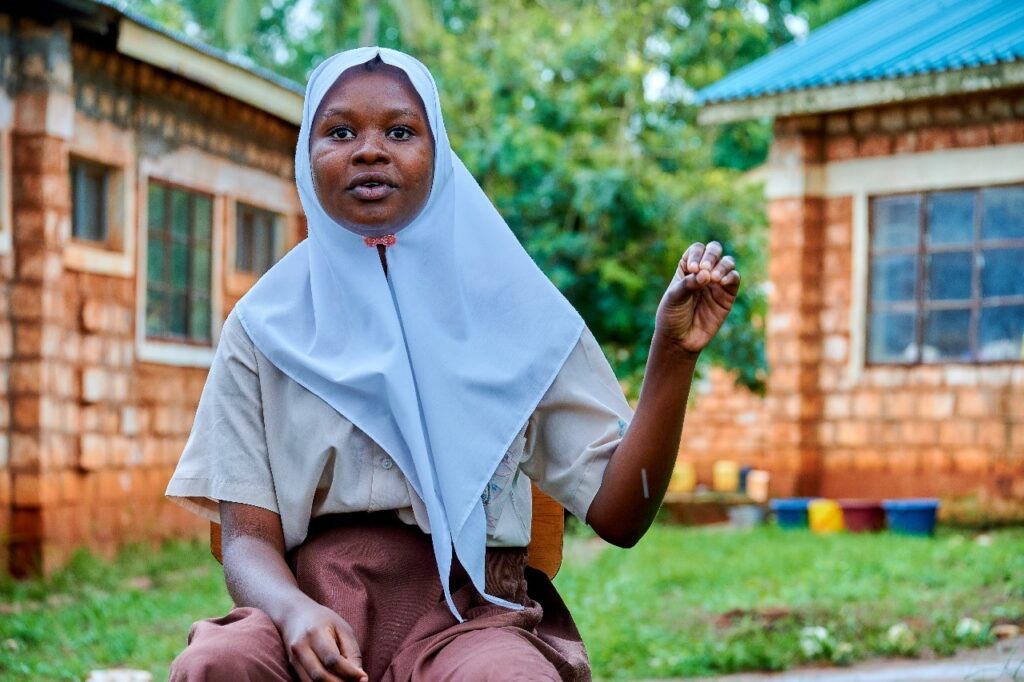Mohammed Hassan comes from a family of eight children in Kwale County. Their father is a fishmonger at Shimoni. The money he earns from selling fish is hardly enough for the family’s needs and he has always to keep the children in school.

After high school, Mohammed was admitted for a diploma course in Fisheries and Aquatic Science at Wildlife Research and Training Institute in Naivasha.
“I joined the college in September 2021 and my father struggled to pay my school fees for the first semester plus the high cost of accommodation,” says Mohammed.
He was at risk of dropping out for lack of fees when he successfully applied for a scholarship from the Kenya Marine Fisheries and Socio-Economic Development Project (KEMFSED) through the County Government of Kwale.
With no worries about fees, Mohammed excelled in his studies. He graduated in December 2023 after completing his attachment at the Kenya Marine Fisheries and Research Institute.

Mohammed is hopeful he will get a job and support his father in educating the younger children.
Another beneficiary is Mwanamsese Isa from Mwaembe village in Msambweni, also in Kwale. Her mother eats fish and her grandfather is a fisherman.
Her family had to solicit contributions from relatives to raise her to join high school in 2021. During her first year, she was often sent home and missed classes due to lack of fees.
Her mother heard about the KEMFSED scholarships from her local beach management unit (BMU). She applied and Mwanamsese was granted a full scholarship.
Mwanamsese and Mohammed are just two students who have received KEMFSED scholarships. By December 2023, the KEMFSED project had awarded scholarships worth over 16 million shillings to about 300 students across Mombasa, Kilifi, Kwale, Tana River, and Lamu
The project’s scholarship program managed jointly with counties supports formal vocational skills training. Scholarship grants are awarded annually to deserving students from fishing communities enrolled in high school students or technical and vocational education and training (TVET) certificate or diploma courses.
The recipients are selected through open applications. The county-led teams review and approve applications after rigorous vetting that involves community representatives to ensure fairness.
The scholarship program is intended to build the local skills pool to help communities better manage fisheries and improve livelihoods. It complements a small grants program for community livelihood, social welfare, and environmental conservation projects implemented by grassroots groups. The community grants also come with skills building for community members to effectively manage their projects, which include businesses in the fisheries value chain, to increase household incomes and sustain the marine ecosystem.

